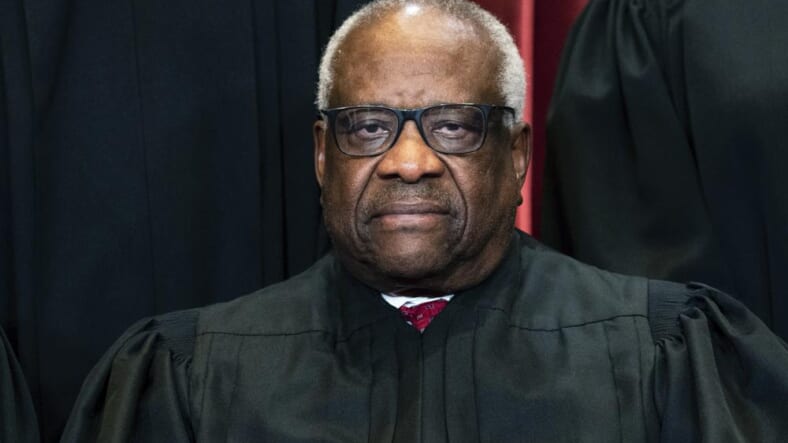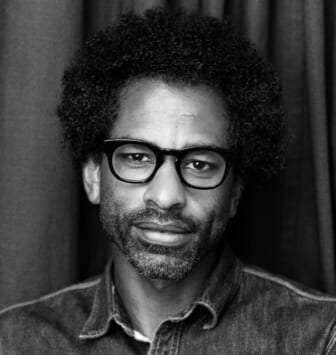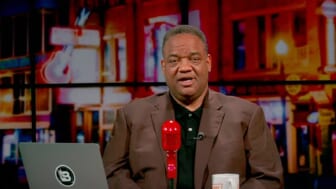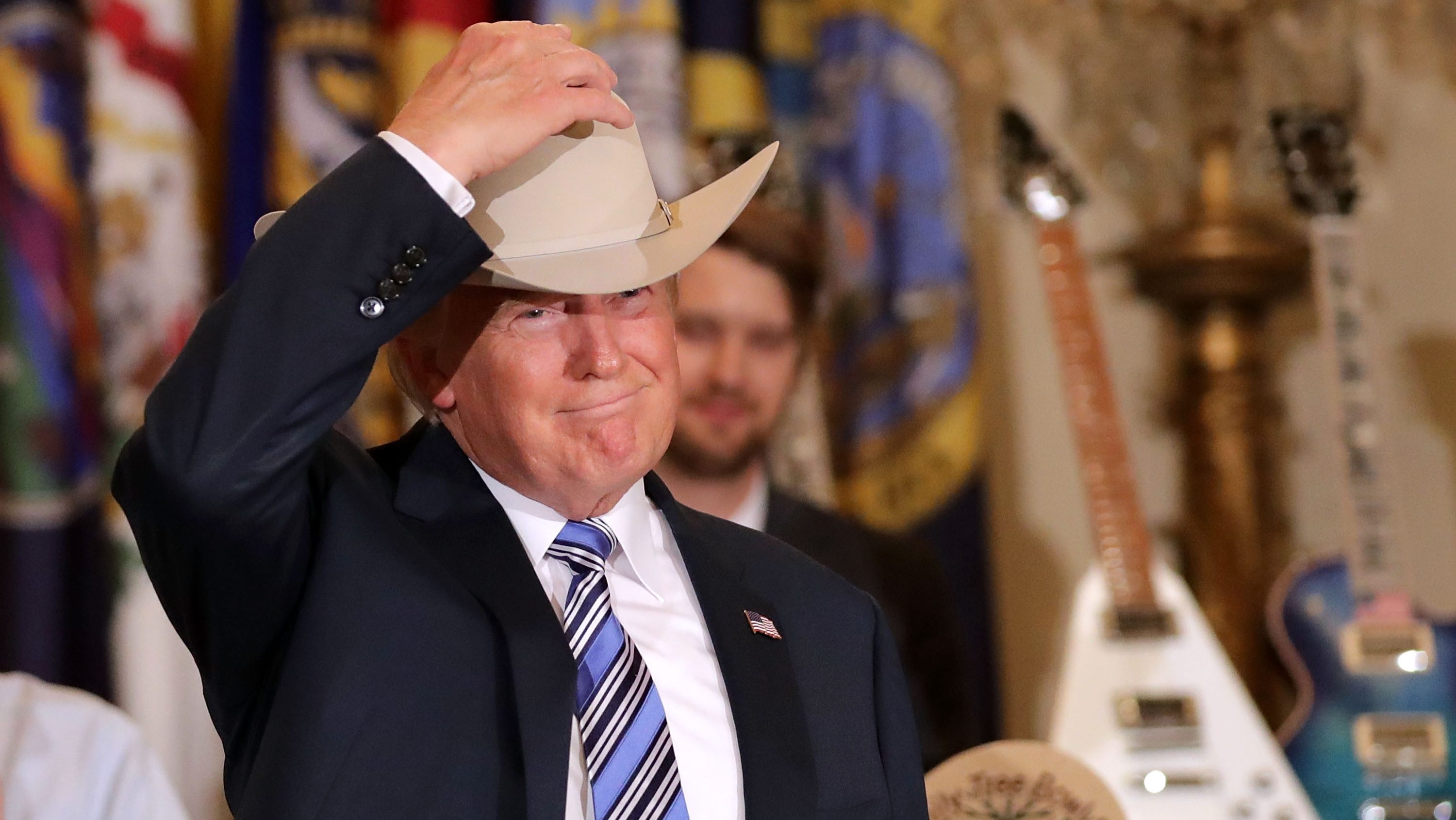
Editor’s note: The following article is an op-ed, and the views expressed are the author’s own. Read more opinions on theGrio.
Clarence Thomas has long been one of the most disappointing Black people in public life. He’s a Black villain like Candace Owens and Jason Whitlock, but unlike them, Thomas has real power. I grew up reading about the first Black Supreme Court justice, Thurgood Marshall, an inspiring Black man who cared deeply about Black people. But as an adult, I have suffered through watching the second Black Supreme Court justice who seems like one of the Internalized Racism All-Stars.
Thomas got into Yale partly because of affirmative action, an acceptance that changed his life, but he now stands against affirmative action because he feels it harms Blacks by branding us with a badge of inferiority. I know what he’s talking about. White people often use affirmative action as a bridge to believing that a Black person doesn’t truly deserve admission into college or to be hired by a company based on race. But previous generations of Black people were barred from entering many institutions because, to white people, our skin was a badge of inferiority. White people will see us as lesser than whether or not we get into Yale so why let their racist opinions define whether or not we have affirmative action?
Thomas grew up a big fan of Malcolm X, but rather than turning his back on Malcolm and his nationalism, Thomas has taken pieces of Malcolm’s teaching and twisted them. Corey Robin, the author of “The Enigma of Clarence Thomas,” said this to Vox:
“He read Malcolm X’s autobiography in his freshman year of college. He had posters of Malcolm X all around his dorm room. He memorized the speeches of Malcolm X by listening to recordings. So Malcolm X was a really formative influence on him. And Malcolm X, like many Black nationalists, had this distinction between two types of white people. There’s the overt racist, “the wolf,” as Malcolm X calls him, who is completely honest and open in his or her racism and makes no pretense about his or her assumption of Black racial inferiority. That’s the kind of racist Thomas would’ve encountered in the South. Then there’s the white liberal, who’s not overtly hateful, who’s sympathetic and wants to help. But in the act of offering help will always remind you of the help that he or she has offered, will never let you forget that there but for the grace of me go you. And Malcolm X called this person “the fox.”
Where Malcolm put these two sorts of people on an equal plane, Thomas, over time, decided that the white person who wants to help is actually the real enemy because Thomas abhors white paternalism. Robin again: “When he comes to the North, he says the message is clear: You got here because of your race. Race is a helping hand … We are no longer the authors of our own achievements. We have co-authors, we have helpers, we have editors, we have facilitators, and they’re all white. And this is a devastating moment of existential crisis for Thomas. It leads him to forever loathe anything that smacks of white paternalism, which he thinks is, in the end, more dangerous than white racism.”
This is the undergirding philosophy that has led Thomas to oppose, more than any other justice, the government’s consideration of race in programs that help African-Americans. But Thomas’ beef with white paternalism only goes so far. Sure, he’s repeatedly ruled in favor of limiting civil rights protections, but if a wealthy white man wants to give him things and take care of him and show off his friendship with one of the most powerful people in America, well, Thomas is fine with that. He’s also fine with hiding it all.
According to a new ProPublica report, Thomas has, for years, accepted lavish vacations from Harlan Crow, a real estate developer who took over the company his father founded and now manages over $16 billion in assets. He also has a collection of Hitler artifacts and Nazi memorabilia. He sounds fun. Of course, he’s also a big right-wing donor. It is extraordinarily unethical for Thomas to accept these gifts — as ProPublica explains, the Supreme Court polices itself, but SCOTUS justices also “consult” the code for federal judges that requires the avoidance of even the appearance of impropriety. Justices are generally required to report any gifts they receive that are worth more than $415. His trips with Crow have been worth hundreds of thousands of dollars, most if not all of it unreported. ProPublica notes that according to four ethics law experts, that looks like a violation of the law. Crow also gave $500,000 to a Tea Party group that was founded by Thomas’ wife Ginni, according to Politico. That money paid Ginni’s salary. You can see how deeply Thomas is in Crow’s pocket.
This is about more than just taking a little trip on a wealthy man’s superyacht. By going on these trips, Thomas is allowing Crow to have extraordinary access to one of the most important people in America. Crow can speak to him and possibly influence him on any number of issues. Or Crow can listen and try to understand what Thomas is thinking and use that to try to predict where things are going and how he can capitalize on that. Also, because Thomas is not the only person on these trips, Crow gains power by being able to decide who else gets to go on these trips and talk with the Supreme Court justice. Anyone in Crow’s orbit who’s hoping for an invite to a trip where they can casually chat with a Supreme Court justice would be willing to do anything to curry Crow’s favor — all of which makes Crow even more powerful.
Also, according to ProPublica, in 2014, Crow purchased the home that Thomas’s aging mother lives in and other lots on her block in Savannah, Georgia, and then paid for renovations that cost over $36,000. “Soon after the sale was completed, contractors began work on tens of thousands of dollars of improvements on the two-bedroom, one-bathroom home, which looks out onto a patch of orange trees. The renovations included a carport, a repaired roof and a new fence and gates, according to city permit records and blueprints.” Of course, none of this was reported but that, to me, is not the biggest issue. That’s bad and possibly illegal, but for me, we see, again, that Clarence Thomas is happy to let a wealthy white man take care of him in all sorts of ways, which means Thomas has given away some of his power. Connecticut Sen. Chris Murphy tweeted: “This is probably the grossest, most brazen conflict of interest in the history of the Supreme Court.”
Owens and Whitlock anger me with their performance of anti-Blackness but Thomas is much more insidious. He’s not performing at all, but he’s slowly chipping away at Black people’s ability to participate in this country. A Black man who thinks white people trying to help us out of racism are more dangerous than racism itself is a very deluded man. I know the pain of white allies who want credit for being allies. That cuts deeply. But I would never argue that we should sacrifice the tools that can help us grow because what will white people think? It’s critical for Black people to not be white-centric. To not see the world through white glasses that have you wondering “But what will white people say”? That’s what Clarence Thomas does and that’s clearly not going to get us free.

Touré is a host and Creative Director at theGrio. He is the host of the podcast “Toure Show” and the podcast docuseries “Who Was Prince?” He is also the author of seven books including the Prince biography Nothing Compares 2 U and the ebook The Ivy League Counterfeiter. Look out for his upcoming podcast Being Black In the 80s.
TheGrio is FREE on your TV via Apple TV, Amazon Fire, Roku, and Android TV. Please download theGrio mobile apps today!
.png)











 English (US) ·
English (US) ·